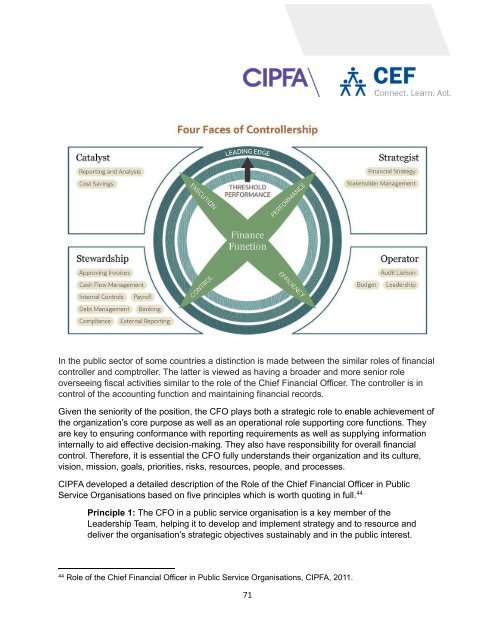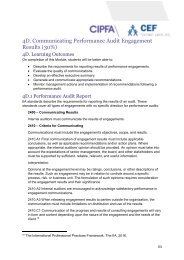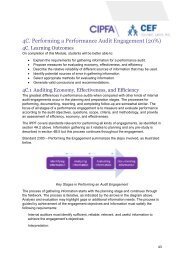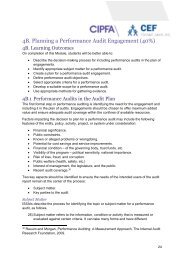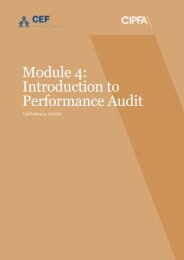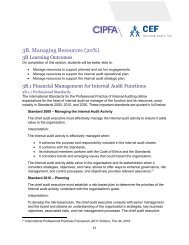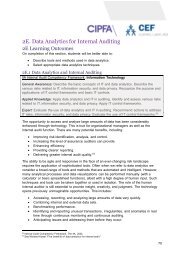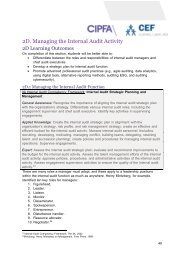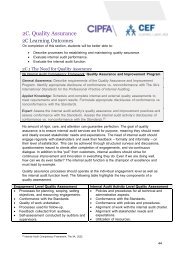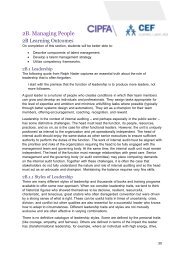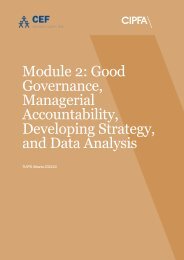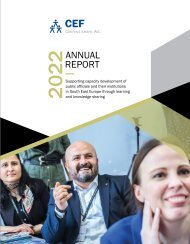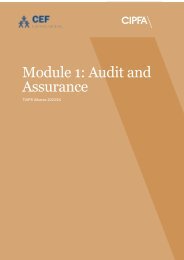You also want an ePaper? Increase the reach of your titles
YUMPU automatically turns print PDFs into web optimized ePapers that Google loves.
In the public sector of some countries a distinction is made between the similar roles of financial<br />
controller and comptroller. The latter is viewed as having a broader and more senior role<br />
overseeing fiscal activities similar to the role of the Chief Financial Officer. The controller is in<br />
control of the accounting function and maintaining financial records.<br />
Given the seniority of the position, the CFO plays both a strategic role to enable achievement of<br />
the organization’s core purpose as well as an operational role supporting core functions. They<br />
are key to ensuring conformance with reporting requirements as well as supplying information<br />
internally to aid effective decision-making. They also have responsibility for overall financial<br />
control. Therefore, it is essential the CFO fully understands their organization and its culture,<br />
vision, mission, goals, priorities, risks, resources, people, and processes.<br />
CIPFA developed a detailed description of the Role of the Chief Financial Officer in Public<br />
Service Organisations based on five principles which is worth quoting in full. 44<br />
Principle 1: The CFO in a public service organisation is a key member of the<br />
Leadership Team, helping it to develop and implement strategy and to resource and<br />
deliver the organisation’s strategic objectives sustainably and in the public interest.<br />
44<br />
Role of the Chief Financial Officer in Public Service Organisations, CIPFA, 2011.<br />
71


